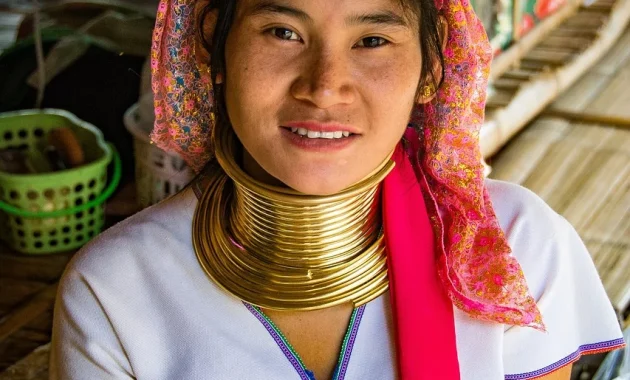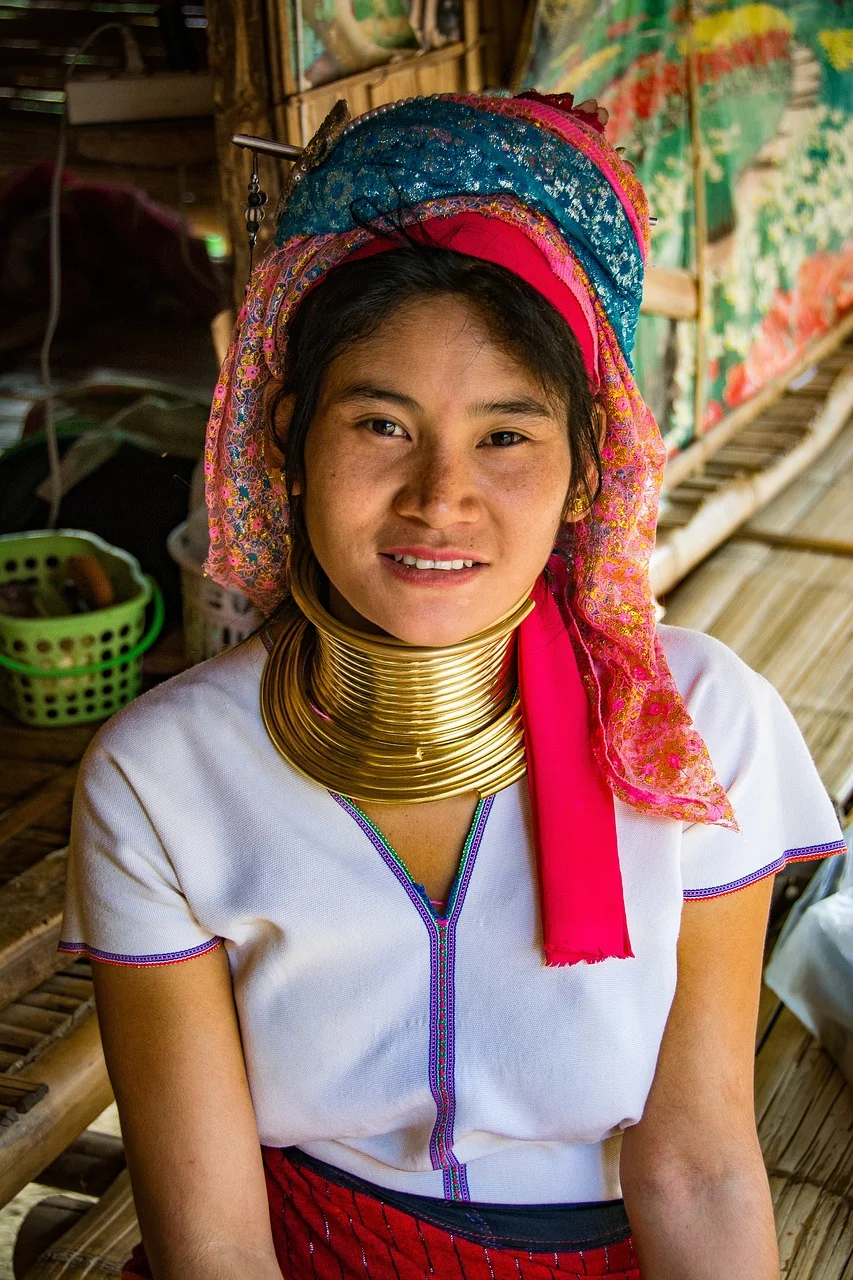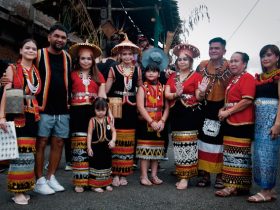The Arkha people originally hail from Tibet and migrated through China, Myanmar, and Laos before settling in Thailand. Their migration story is one of resilience and adaptability, as they sought fertile lands and safe havens to establish their communities. Today, the Arkha primarily reside in the mountainous regions of Chiang Rai and Chiang Mai.
Settlement in Chiang Rai
In Chiang Rai, the Arkha have found a place where they can maintain their traditional way of life. The mountainous terrain and remote locations of their villages have helped preserve their cultural practices, allowing the Arkha to thrive while staying connected to their roots.
Cultural Traditions of the Arkha
Traditional Clothing
The Arkha are renowned for their traditional clothing, which is rich in symbolism and craftsmanship. Both men and women wear garments adorned with intricate embroidery, silver ornaments, and beads. The most striking aspect of Arkha attire is the headdress worn by women, which varies in design based on age, marital status, and region. These headdresses are often embellished with silver coins, seeds, and feathers, each element carrying cultural significance.
Language and Oral Traditions
The Arkha language is an essential part of their identity. It is a tonal language belonging to the Tibeto-Burman family. Despite pressures from the dominant Thai culture, the Arkha have preserved their language through oral traditions. Folktales, songs, and proverbs are passed down through generations, keeping the language and its rich cultural heritage alive.
Social Structure and Community Life
Arkha society is traditionally organized around extended families and clans. The community operates on principles of mutual aid and cooperation, with strong kinship ties playing a central role in social organization. Elders hold a revered status, and their wisdom and guidance are integral to decision-making processes.
Festivals and Celebrations

New Year Festival
One of the most significant events in the Arkha calendar is the New Year Festival, also known as the “Swing Festival.” This celebration, which takes place in August, marks the end of the rice planting season and the beginning of the harvest. It is a time of joyous festivities, including singing, dancing, and swinging on large bamboo swings, symbolizing a connection between the earthly and spiritual realms.
Harvest Festival
The Harvest Festival is another key celebration, held to give thanks for the bountiful crops. It is a communal event involving elaborate rituals, traditional dances, and feasting. The festival also serves as an opportunity for the community to strengthen bonds and reaffirm cultural values.
Spiritual Beliefs and Practices
The Arkha people practice a blend of animism and ancestor worship, with a deep respect for the natural world. They believe that spirits inhabit all elements of nature, and maintaining harmony with these spirits is crucial for their well-being. Rituals and ceremonies are conducted by shamans, who serve as intermediaries between the physical and spiritual worlds.
Challenges and Preservation Efforts
Impact of Modernization
Despite their resilience, the Arkha people face significant challenges in preserving their cultural heritage. Modernization and economic pressures have led to changes in traditional practices, with younger generations often moving to urban areas for better opportunities. This migration has resulted in a gradual erosion of cultural knowledge and practices.
Efforts to Preserve Arkha Heritage
In response to these challenges, there have been concerted efforts to preserve Arkha heritage. Community leaders, non-governmental organizations, and academic institutions have initiated programs to document and promote Arkha culture. These include cultural preservation projects, educational programs, and tourism initiatives that showcase Arkha traditions to a broader audience.
Cultural Tourism
Cultural tourism has emerged as a vital tool for preserving Arkha heritage. By welcoming visitors to their villages, the Arkha can share their traditions and generate income to support their communities. This form of sustainable tourism emphasizes respectful engagement and mutual learning, allowing tourists to experience Arkha culture authentically.





